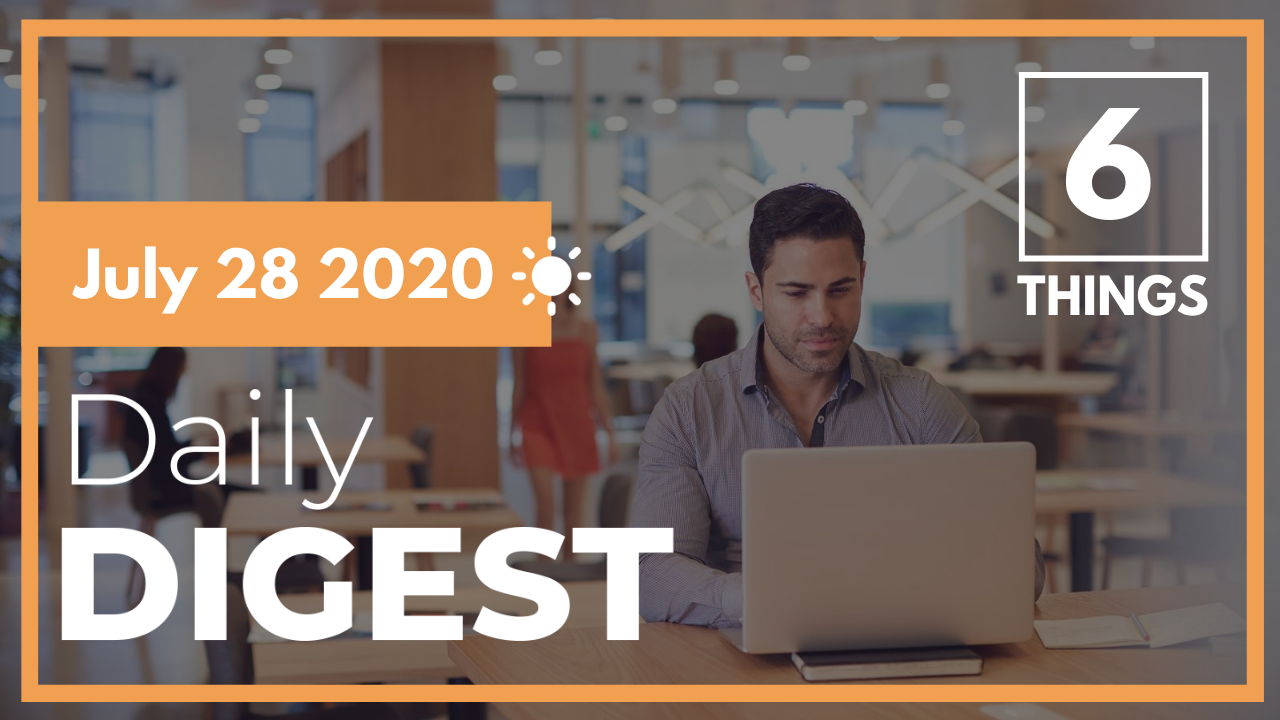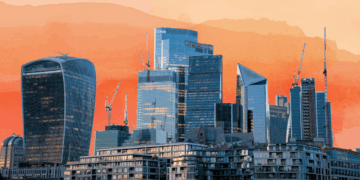Hand selected flexible workspace news from the most reliable sources to keep you ahead of the pack. We find all the latest news, so you don’t have to. Morning and afternoon updates. Stay in the know.
Here’s what you need to know today:
- How Work Flexibility Could Accelerate The Shift To Smart Cities NEW
- London Flexible Office Company Sees 5% Drop In Property Value NEW
- Now More Than Ever, Workplaces Should Be Designed For Positive Experiences NEW
- ‘Enterprise Flex’ Is Bridging The Gap Between Traditional Offices And Coworking
- IWG Takes Over Former WeWork Space In Hong Kong
- Why The Term ‘Office’ Could Soon Be Phased Out
How Work Flexibility Could Accelerate The Shift To Smart Cities
The pandemic has brought about huge changes in many aspects of work and lifestyle. One transformation that could soon come about is a shift to smart cities.
“We need to reimagine how workplaces can look like and how they best serve work and add value,” says Frederik Anseel, Associate Dean of Research and Professor of Management at UNSW Business School.
A key part of smarter cities lies in flexibility, with people having greater choice over where, how and when they work. This is expected to lead to hub and spoke office models, with small workspaces available for people to meet all over the city, closer to peoples’ homes.
“This is the concept of the 15-minute city,” added Prof Anseel, “where people do not need to commute for long times.
“Work hubs will also be more embedded in community life, making it easier to flexibly switch from meeting someone, doing some concentrated work at home, go shopping and exercise and go out with friends or colleagues – all in the vicinity of one’s own house and workspace.”
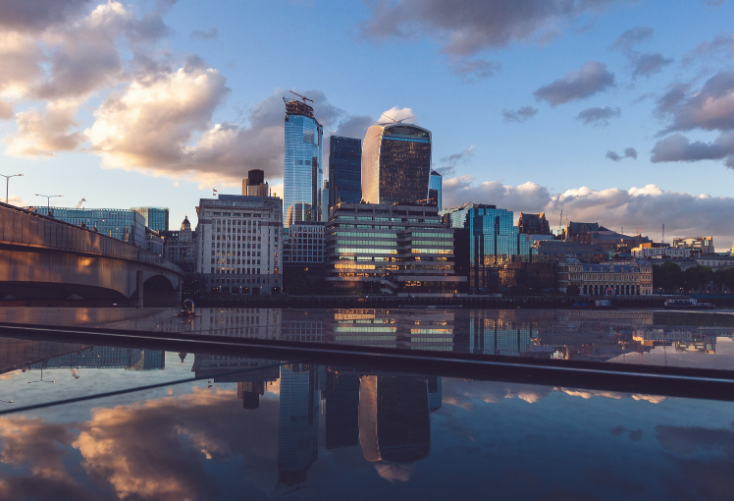
London Flexible Office Company Sees 5% Drop In Property Value
London flexible office provider, Workspace, has written down the value of its portfolio. In its half-year results it said that its properties were worth £2.5bn, 5 per cent less than at the end of March.
The company reported that occupancy and rents are down, and the board has deferred a decision on the dividend until the full-year results.
Chief executive Graham Clemett said that the pandemic had “accelerated fundamental changes to the role and requirements of the office”.
However, flexible office companies are ideally placed to support the businesses that occupy them, which Clemett said “would need to be agile and would expect the same from their office providers.”
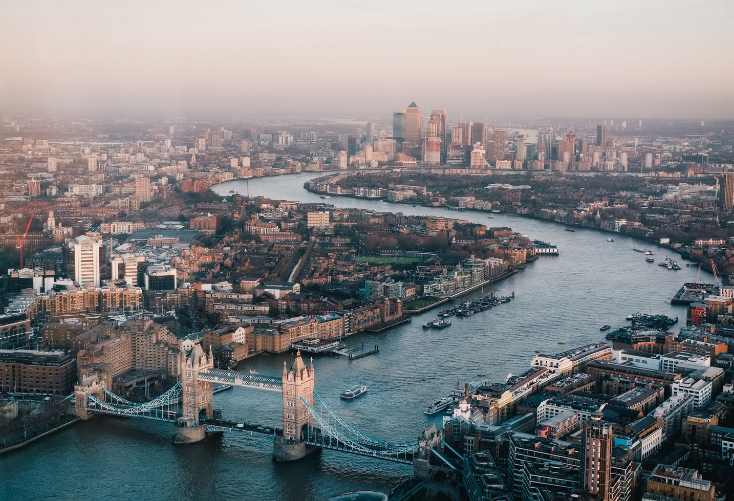
Now More Than Ever, Workplaces Should Be Designed For Positive Experiences
There are multiple requirements to create a successful office. Yet even in our current situation of physical distancing and limited person-to-person contact, the social office is still integral to the future of work.
For some time, businesses have been changing their approach to the workplace, by focusing on the experience and wellbeing of the people who use it.
Many employers are now using experiential design to attract and retain talent. For instance, workplaces are moving away from the larger open plans of previous decades, welcoming in more warmth, textures and soft furnishings.
Features such as ergonomic furniture, effective lighting, temperature, and visual elements that evoke comfort are all essential in the modern workplace. This is why some large headquarters now feature various features such as massage rooms, kitchens, canteens, and extensive breakout spaces.
In addition to a social workplace, future offices need to focus on technology and sustainability to attract the best staff and customers. But above all, the building must be designed to be pleasant to work in.

‘Enterprise Flex’ Is Bridging The Gap Between Traditional Offices And Coworking
Companies have spent the majority of 2020 learning how to be flexible. While remote work may have worked for a while, its limitations have soon become apparent.
For instance, creativity thrives when employees can collaborate in real time, which is vital for team engagement and productivity. While working from home and collaborating over digital channels, many people — particularly younger generations — are missing out on the natural mentorship and community they would have experienced in an office setting.
Now, people and teams are heading back to their (Covid-safe) offices in droves, in an effort to recoup that face-to-face collaboration, culture and work-life balance they’ve been missing.
So-called ‘enterprise flex’ is one emerging trend.
It’s a blend of traditional office leasing and modern coworking; landlords offer greater flexibility through shorter lease terms, as well as greater choice of space, and in doing so are attracting larger firms that want the best of both worlds.

IWG Takes Over Former WeWork Space In Hong Kong
IWG Plc is set to open a new flexible office space in Kowloon, one of Hong Kong’s prime business districts.
Under its Signature brand, IWG will open the space on December 1, 2020, in The Gateway, a commercial complex that was formerly occupied by coworking giant WeWork.
IWG’s new space, Signature at Gateway, is a 50,000 sq ft space located across two floors. It marks the company’s introduction of its Signature by Regus brand in Hong Kong.
“IWG is actively looking to increase its footprint in Hong Kong, at a time when a number of our competitors are retrenching,” said Paul MacAndrew, country manager for IWG in Hong Kong. “Signature at Gateway is a fitting addition to the IWG portfolio in the region.”
Despite the pandemic, IWG opened 104 new locations across nine brands between February and September 2020, with further expansion in the pipeline.
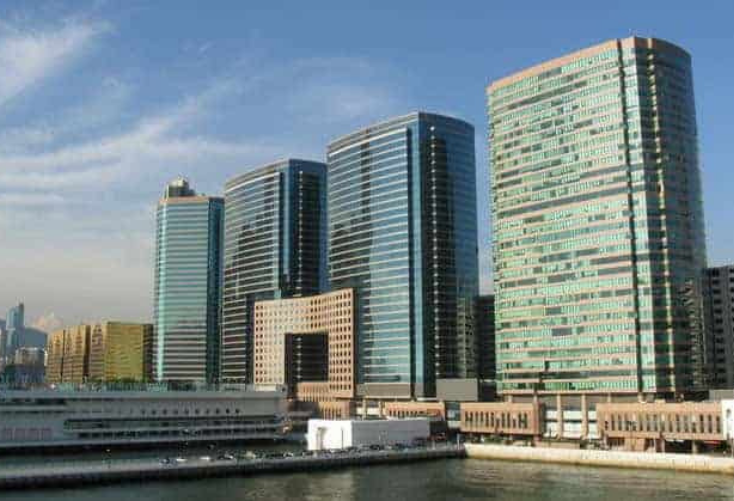
Why The Term ‘Office’ Could Soon Be Phased Out
What does the future of work look like? A new report from the Urban Land Institute — ‘Future of Work 2020: A global real estate players’ point of view’ — may shed light on the post-pandemic world of workspace.
Takeaways include:
- 96% of respondents expect there will be more home working
- 72% expect more remote work away from the home
- 67% predict the adoption of satellite offices at the edge of cities
- 93% expect physical office space to play a key role in recruiting and retaining employees
- 53% anticipate a decrease in the office space needed by their organisation
- 81% anticipate a demand for collaborative work spaces.
The report notes that the “resulting ecosystem of workplaces will accelerate a blending of uses between residential, hospitality and office spaces” and could even trigger a shift in language, from ‘office’ to ‘workspace’.
Physical office space could become a hub, rather than simply a place to work, and the integration of flexible leases and coworking spaces into real estate is expected to continue further.
The report speculates these shifts may lead to “a much faster obsolescence of buildings and future significant repurposing of office buildings”.
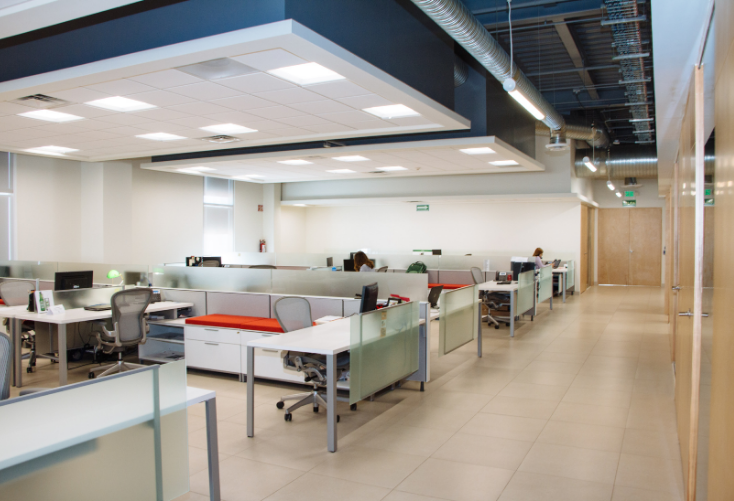



 Dr. Gleb Tsipursky – The Office Whisperer
Dr. Gleb Tsipursky – The Office Whisperer Nirit Cohen – WorkFutures
Nirit Cohen – WorkFutures Angela Howard – Culture Expert
Angela Howard – Culture Expert Drew Jones – Design & Innovation
Drew Jones – Design & Innovation Jonathan Price – CRE & Flex Expert
Jonathan Price – CRE & Flex Expert
